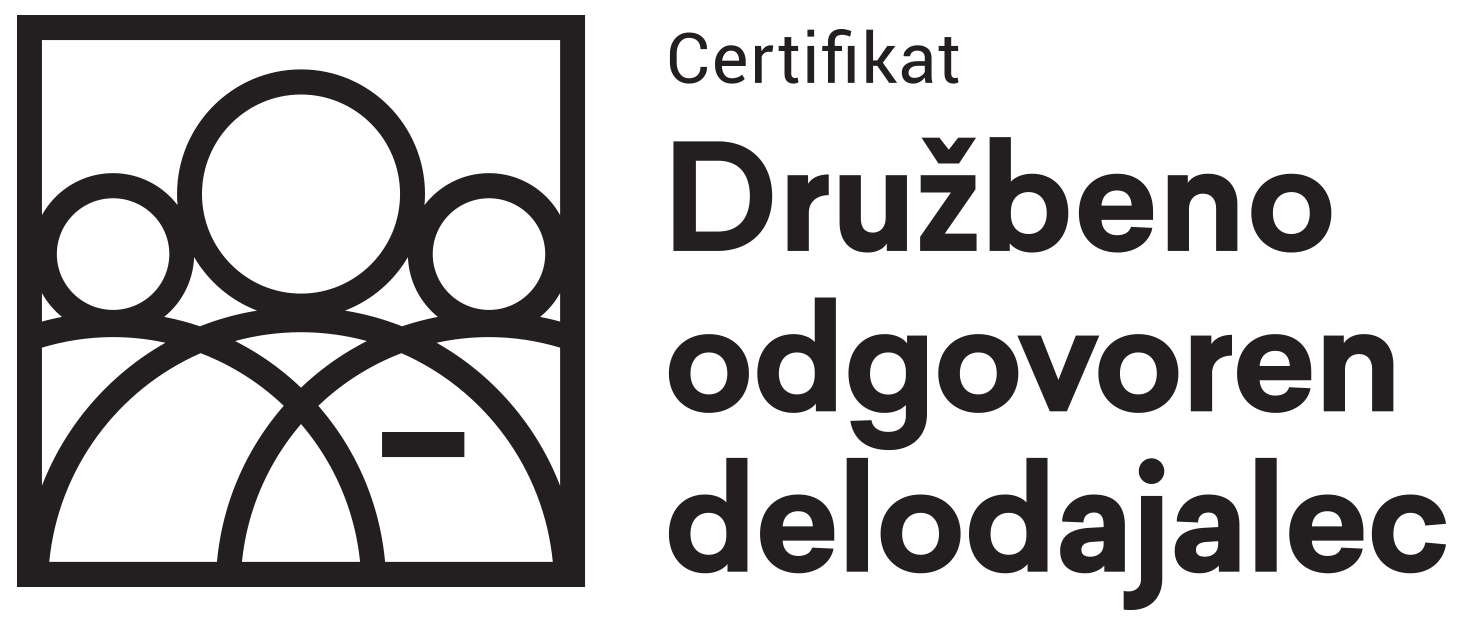Through planned activities, the project assesses and improves corporate social responsibility of companies and organizations, with a strong emphasis on accountability to employees. Using the principles of sustainable development, the project addresses social and environmental challenges and offers measures to reduce the negative and increase the positive impacts on the economy, society and the environment.
THE PROBLEM
Like the whole world, Slovenia faces the challenge of ensuring equitable and balanced development - sustainable development. In addition to the pronounced climate change, it is witnessing the depletion and pollution of natural resources and many social problems such as migration, inequality and discrimination, war conflicts, and an ageing population. To address these challenges, the European Union has adopted sustainable development or corporate social responsibility as a possible way of addressing current problems. In addition to the Member States, companies and organisations play an important role in this development, as they can, on the one hand, have a negative impact on sustainable development, and are often one of the main culprits for environmental and social problems, and on the other hand, with socially responsible activities, contribute to the development of society and the planet. Sustainable development and social responsibility can mean long-term success, greater flexibility, satisfaction of employees and other stakeholders and, through innovation, authenticity, and accountability, a competitive advantage (Banerjee, 2003).
When it comes to corporate social responsibility, accountability to employees is an important aspect. In addition to broader social responsibility, the project focuses primarily on the societal challenges and responsibilities of employers to employees and, consequently, to society. The social and related challenges of employers today are mainly related to the ageing of the population, migration, unemployment, brain drain of the young workforce, which is accompanied by trends towards more flexible forms of work organization, better reconciliation of private and professional life, prolongation of work, etc.
The project strengthens the capacity of companies to holistically address the area of social responsibility and plan their activities in the area of employee responsibility comprehensively and sustainably.
PROJECT GOALS and ACTIVITIES
The project aims to: increase the level of socially responsible activities of companies and organizations and thus increase the satisfaction of employees as well as other stakeholders, increase the reputation of companies, social acceptance, the flexibility of work organization and the competitive advantage of the companies involved.
The project activities are divided into two basic sections:
- Development of the Certificate socially responsible company and certification of at least 100 companies/organizations (involving at least 200 organizations) during the span of the project. All social partners are involved in the development of the certificate, as well as in its implementation, evaluation and monitoring. Supportive management tools are being developed and the certification system will remain sustainable even after the end of the project;
- A strong supportive communication and information campaign addressing all the major stakeholders of corporate social responsibility - business, professional and general public, and policymakers. A key element in ensuring the sustainability of socially responsible quality brands is support and visibility in the general public.
CERTIFICATION SYSTEM
The certification system consists of the principal and areal certificates “Socially responsible employer - Socially responsible company”, where the principal certificate contains four areas of measures that companies are either starting to implement or are already implementing, namely:
- Area 1: Organizational Management
Sustainable or corporate socially responsible strategy and management, shareholder approach, transparency and sustainable/non-financial reporting, ethics and integrity, including the solidification of ethical values of management and employees with an emphasis on non-discrimination and diversity in the workplace, responsibility to the natural environment, and community engagement and development. - Area 2: Reconciling personal and professional life
Measures to facilitate the reconciliation of the private and professional lives of all employees throughout the individual's life cycle. - Area 3: Intergenerational cooperation
Carrying out intergenerational cooperation activities with an emphasis on adapting jobs to older employees, taking into account the specificities and needs of each individual's life span. - Area 4: Health and safety at work
Raising awareness of the importance of health at work and endorsing the promotion of health-friendly improvements in the work and organizational environment.
Organisations can apply for all four certification areas to obtain the principle certificate, or they can choose up to three individual areas in which they can obtain areal certification.
PROJECT PARTNERSHIP
Project leader:
Ekvilib Institute
Project partners:
Association of Employers of Slovenia
Chamber of Commerce and Industry of Slovenia
Association of free trade unions of Slovenia


The project is co-financed by the European Union from the European Social Fund, and the Republic of Slovenia.

